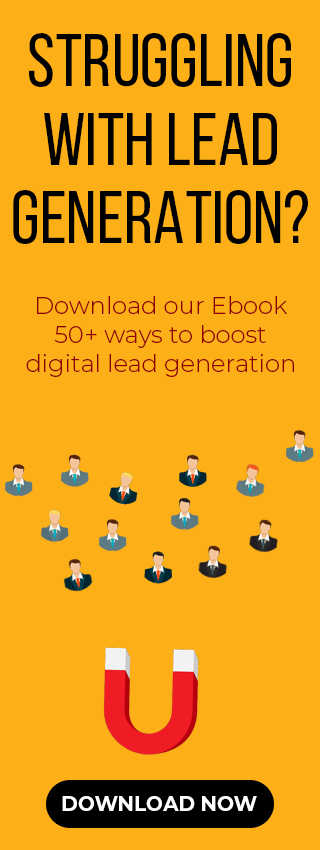Online success today means connecting with your customers and not just sending generic ads. Google uses its advanced AI to understand the deeper meaning behind users’ search intent.
Their AI matches customers’ wants with the brand’s products by decoding the hidden meaning in their language. This helps the right message reach the right person at the right time.
Decoding User Intent
People use many different ways to search online including synonyms and slang. About 15% of daily searches include completely new terms that Google has never seen before. Marketers had to guess exact keywords in the past to reach their target audience. And they would miss their customers if the words didn’t match.
But Google’s AI has changed this game by understanding what people mean and not just the words they type.
Searches like “affordable running shoes” and “best budget sneakers” mean the same thing. Google’s AI knows that both these users want a good and affordable shoe. Google connects marketers with the right audience even with varied phrasing by understanding subtle language differences.
Connecting Search Intent with Ads
Google’s AI acts as a competent translator between customers and brands. It matches your ad to the user’s search words by understanding language and context. Think of it as Google speaking the customer’s language.
Take the example of a shoe retailer. AI knows that “affordable running shoes” and “best budget sneakers” mean the same thing. So the retailer’s ads can now appear for both searches even if he only paid for a single keyword.
This smart insight comes from large language models like BERT which are trained to detect patterns and meaning in language and grasp its full intent.
Understanding the Context
Google’s AI excels at interpreting small words that change a search’s meaning. It correctly understands the direction of travel for a search like “Brazil traveler to USA needs a visa” that older systems struggled with. This deep understanding means users see results and ads that actually match what they want.
Google also uses its semantic analysis to improve its ad tools. Their broad match keywords in Google Ads for example were once too general. But AI has made them smarter. It can now easily figure out a search’s true intent and context.
It was confusing to treat “treating a pet at home” as “pet treats” in the past due to limitations. AI now knows that this search is for vet advice and not snacks.
It can even link related but different phrases like “without a vet” and “treating a pet at home.” This means ads are shown only for highly relevant searches and only reach truly interested customers.
A Better Experience for Everyone
This AI-driven language understanding is a win-win:
- For Marketers: Google Ads are better targeted and you save money by avoiding irrelevant searches and get more clicks. AI ensures you don’t miss customers using uncommon words.
- For Customers: You find what you need faster without having to search again and again. Your experience is much smoother and more satisfying now.
Google’s AI in short matches what the user wants with what the marketer offers which leads to happier users and better sales leads.
Why AI Connection is Vital
People search using a natural and conversational language especially with voice searches today. Users now expect Google to understand their full request for a complex query they ask online.
Google’s AI helps marketers meet this expectation. AI helps your business stand out and ensures your ad appears when a customer has a clear need by understanding subtle and conversational queries.
This allows businesses to build trust and credibility by regularly providing relevant answers. Google’s AI is now helping companies personalize their message at a massive scale to reach more clients.
AI is constantly learning and adapting to new slang and search styles. This ensures the AI quickly connects your brand with the person who is searching for your products. It reduces the risk of missing a sales opportunity due to a new wording.
Conclusion
Google’s AI is much more than just a regular tool now. It’s now strategic support for marketers.
It ensures your content and ads reach people searching for your solutions by clearly understanding human language. The search experience becomes a conversation where users express their needs and Google responds with relevant products on your behalf like a perfect partner.
This AI matching feature is great for everyone. Customers can now find what they want easily. And marketers can now connect with an audience that is actually interested in their products. This is a huge improvement over the old method of blindly bidding on random keywords.
Google AI in short helps marketers by making search more human. It listens to our queries and delivers relevant results accordingly. Using this AI means better marketing and more sales for both big and small brands.
Using this technology isn’t just about staying ahead. It’s also about knowing that successful marketing relies on truly understanding your customer. Google’s AI is helping you do that better and ensure you have the answer when a potential user searches online.
FAQs
Q1. How does Google AI understand user intent beyond exact keywords?
Google’s AI like the BERT model doesn’t just look at keywords. It analyzes the full context and meaning of a sentence to find out the user’s true search intent.
Q2. Does using Google AI reduce irrelevant ad spend?
Yes. Because the AI is better at understanding what users want and shows fewer ads to uninterested users. This makes your campaigns more efficient and lowers wasted ad spend.
Q3. Can small businesses benefit from Google’s AI-driven marketing?
Absolutely. AI tools like automated bidding and smart audience signals can help your business reach interested customers more effectively. This applies even with smaller budgets.
Q4. Does Google share my advertising data with competitors when using AI tools?
No. Google uses anonymous data to improve its AI models. But your specific sales data is never shared with or exposed to your competitors.
Q5. Will AI-generated ad creative violate copyright or brand rules?
AI tools should assist your creative work. Always check any content that AI creates to ensure it matches your brand’s style and follows all legal rules before publishing.
Q6. How does Google’s AI improve over time with my campaign data?
AI learns from how your ads perform like the number of sales you get and uses that information to make your targeting and bidding better. Your job is to supply good data and the AI will improve your results accordingly.
Also Read:
How to use Meta Creator Studio for Instagram
Best Real Estate keywords For Google Ranking To Boost Leads





